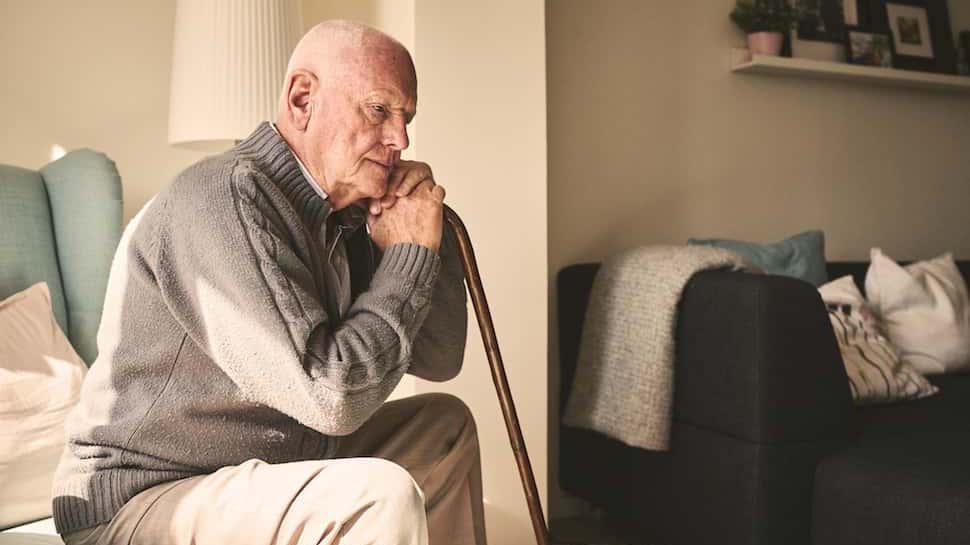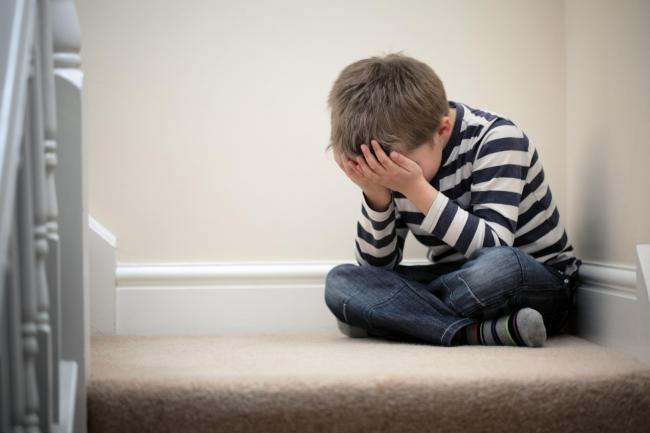
Everyone is familiar with anger. We’ve all been there. You feel it building. It is slow at first, like a locomotive, then faster, then stronger. Now at full speed, it seems like it cannot be stopped. Like a destructive force, controlled by an out of this world energy, we act, speak, and think in a way that just doesn’t make sense or seems out of character. What was that? Why were we angry? What can we do about it?
What is Anger?
At its core, anger is simply an emotion. Anger is defined as a strong feeling of displeasure, annoyance, hostility, or antagonism. Anger can be considered a secondary emotion. It is the response to other emotions having been triggered first. Anger is the emotion needed to engage the “fight” in the Fight or Flight Response System. It is a protective force utilized when dealing with a real or perceived threat.
The expression of anger tends to be primarily behavioral. The source of anger tends to be primarily emotional. However, anger can be expressed in both overt and covert ways.
Not all who struggle with anger will act out in a visible manner. Not all will have a “quick temper” or be “hot headed” as we have come to label those who display anger. Some may be passive-aggressive. Some may bottle it up and let it build and then explode visibly. Others may turn their anger inward and become withdrawn, isolated, or even depressed.
Why Do We Get Angry?
We get angry about what is happening in the world around us. It is our internal response to external stressors. Common emotions known to trigger anger are anxiety, shame, sadness, fear, frustration, guilt, disappointment, worry, embarrassment, jealousy, and hurt. All of these emotions are experienced as negative and are perceived as threatening to our well-being.
Simplifying it and breaking it down to a purely primitive sense, we get angry because we feel a need to protect ourselves. For example, a young boy receives a bad grade in class (environmental stressor) and is feeling disappointed and embarrassed (internal trigger). He knows he will get into trouble at home (perceived threat). Later, when a classmate talks to him (also a perceived threat), he pushes him and yells “leave me alone.”
The boy’s disappointment triggered his anger and therefore an angry behavior.
What Do We Do?
Given that anger is displayed in many ways, some of which being aggressive and unsafe behaviors, always assess for safety risks first. If safety is a concern, it may be necessary to contact a cognitive therapist, immediately. Though it’s imperative to address the emotional triggers to truly work through anger, safety must be dealt with first.
Whether there is or isn’t a safety issue, take a break and walk away. No matter the situation or scenario, it’s always best to let cooler heads prevail.
Once everyone is calm, you can begin the discussion about emotional triggers and work on validation. It is imperative to validate the emotions driving the behavior. This is where true change is made. It is important to spend time listening and communicating, keeping in mind not to blame or shame those involved.
When demonstrating true understanding, it builds trust and respect and can impact the outcomes of future experiences with anger. If the trigger emotions and the associated anger are not validated, then the angry behaviors will not go away. In fact, if one were to focus only on the undesired behavior, it is very likely that the anger and behavior will get worse. Remember, thought behaviors create an observable issue, anger is an emotion. You must deal with the emotions.
The experience of anger often is an intense one for all parties involved. It is for this reason we continuously hear the phrase “anger problem.” If you feel that you or someone you love is experiencing anger so frequently and so intensely that it seems out of control, then it may be necessary to talk to a professional.
A therapist can help someone struggling with anger to learn to control their anger using behavioral strategies or emotional regulation strategies. Furthermore, through individual and/or group therapy, a therapist can help identify and work to resolve the root emotional causes that contribute to anger.
Though anger is a normal emotion, it can be a dangerous emotion. It is experienced in so many ways and for so many reasons. The problem lies in our outward expression, our inability to understand, and our focus on the behaviors. If true resolution is your goal, then you must know what’s hiding behind the anger.
The following 10 ways to release your anger may help you manage emotions better. Ideally, we highly encourage anyone dealing with anger issues to speak with a therapist first in order to identify triggers and develop a personalized, short and long-term program.
Take Deep Breaths
In the heat of the moment, it’s easy to overlook your breathing. But that kind of shallow breathing you do when you’re angry keeps you in flight-or-flight mode.To combat this, try taking slow, controlled breaths you inhale from your belly rather than your chest. This allows your body to instantly calm itself.
You can also keep this breathing exercise:
- Find a chair or place where you can comfortably sit, allowing your neck and shoulders to fully relax.
- Breathe deeply through your nose, and pay attention to your tummy rising.
- Exhale through your mouth.
- Try doing this exercise 3 times a day for 5 to 10 minutes or as needed.
Recite a Comforting Mantra
Repeating a calming phrase can make it easier to express difficult emotions, including anger and frustration. Try slowly repeating, “Take it easy,” or “Everything’s going to be okay,” the next time you’re feeling overwhelmed by a situation. You can do this out loud if you want, but you can also say it under your breath or in your head.You can also keep a list of phrases on your phone for a quick reminder before a stressful work presentation or challenging meeting.
Try Visualization
Finding your happy place in the midst of a flight delay or work setback can help you feel more relaxed in the moment. When wrestling with boiling tension, try painting a mental picture to calm your body and brain:
- Think of a real or imaginary place that makes you feel happy, peaceful, and safe. This can be that camping trip to the mountains you took last year or an exotic beach you’d like to visit someday.
- Focus on the sensory details by envisioning yourself there. What are the smells, sights, and sounds?
- Be aware of your breathing and keep this image in your mind until you feel your anxiety start to lift.
Mindfully Move Your Body
Sometimes, sitting still can make you feel even more anxious or on edge. Mindfully moving your body with yoga and other calming exercises can release tension in your muscles. The next time you’re confronted by a stressful situation, try taking a walk or even doing some light dancing to keep your mind off the stress.
Check Your Perspective
Moments of high stress can warp your perception of reality, making you feel like the world is out to get you. The next time you feel anger bubbling up, try to check your perspective.Everyone has bad days from time to time, and tomorrow will be a fresh start.
Express Your Frustration
Angry outbursts won’t do you any favors, but that doesn’t mean you can’t vent your frustrations to a trusted friend or family member after a particularly bad day. Plus, allowing yourself space to express some of your anger prevents it from bubbling up inside. Speaking with a licensed therapist may also be the best release for expressing your emotions.
Defuse Anger with Humor
Finding the humor in a heated moment can help you keep a balanced perspective. This doesn’t mean you should simply laugh off your problems, but looking at them in a more lighthearted way can help.
The next time you feel your rage bubbling up, imagine how this scenario might look to an outsider? How might this be funny to them? By not taking yourself too seriously, you’ll have more chances to see how unimportant minor annoyances are in the big scheme of things.
Change Your Surroundings
Give yourself a break by taking some personal time from your immediate surroundings.If your home is cluttered and stressing you out, for example, take a drive or a long walk. You’ll likely find that you’re better equipped to sort through the mess when you return.
Recognize Triggers and Find Alternatives
If your daily routine turns you into ball of rage and frustration, try finding an alternative route or changing things up prior to getting to work. Got a loud neighbor who constantly has people over or plays music at the utmost volume? Look into some noise-cancelling headphones.
The idea is to pinpoint and understand the things that trigger your anger. Once you’re more aware of what they are, you can take steps to avoid falling prey to them.
If you aren’t sure where your anger is coming from, try to remind yourself to take a moment the next time you feel angry. Use this time to take stock of what happened in the moments leading up to your feelings of anger. Were you with a particular person? What were you doing? How were your feelings leading up to that moment? If you need help, contact a professional therapist to find the triggers with you and solve them together.
Focus on What You Appreciate
While dwelling on your day’s misfortunes can seem like the natural thing to do, it won’t help you in the short or long term. Instead, try refocusing on the things that went well. If you can’t find the silver lining in the day, you can also try thinking how things might’ve gone even worse.
Why Therapy Can Help
It’s totally normal and healthy to feel upset an angry from time to time. But if you can’t shake a bad mood or constantly feel overwhelmed by anger, it might be time to ask for help.
If your anger is impacting your relationships and well-being, talking with a qualified therapist can help you work through the sources of your anger and help you develop better coping tools.
We are always here to help the people residing in McKinney, Plano, Dallas, Denton, Allen, Garland, and the surrounding communities throughout Texas. If you believe that you are struggling with anger issues at this time, or you know someone who may be, we highly recommend that you reach out to our professional counselor team at Foundations Counseling.
















 Types of Childhood Anxiety Disorders
Types of Childhood Anxiety Disorders












